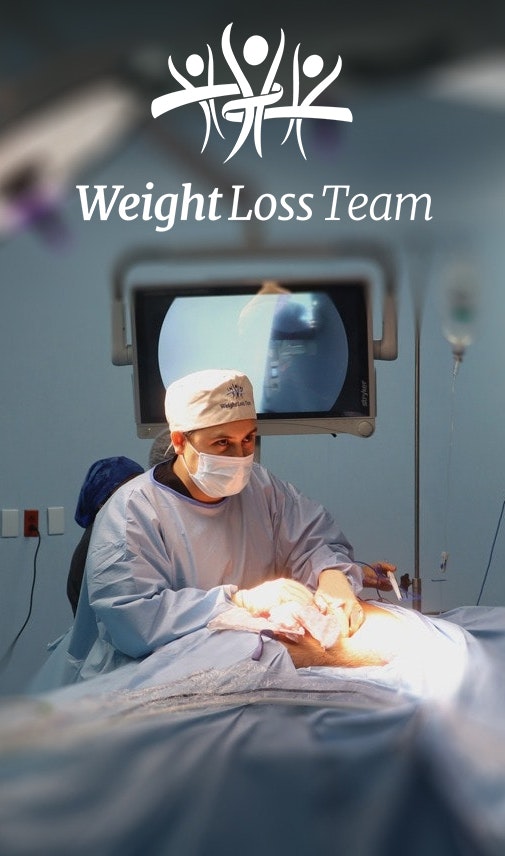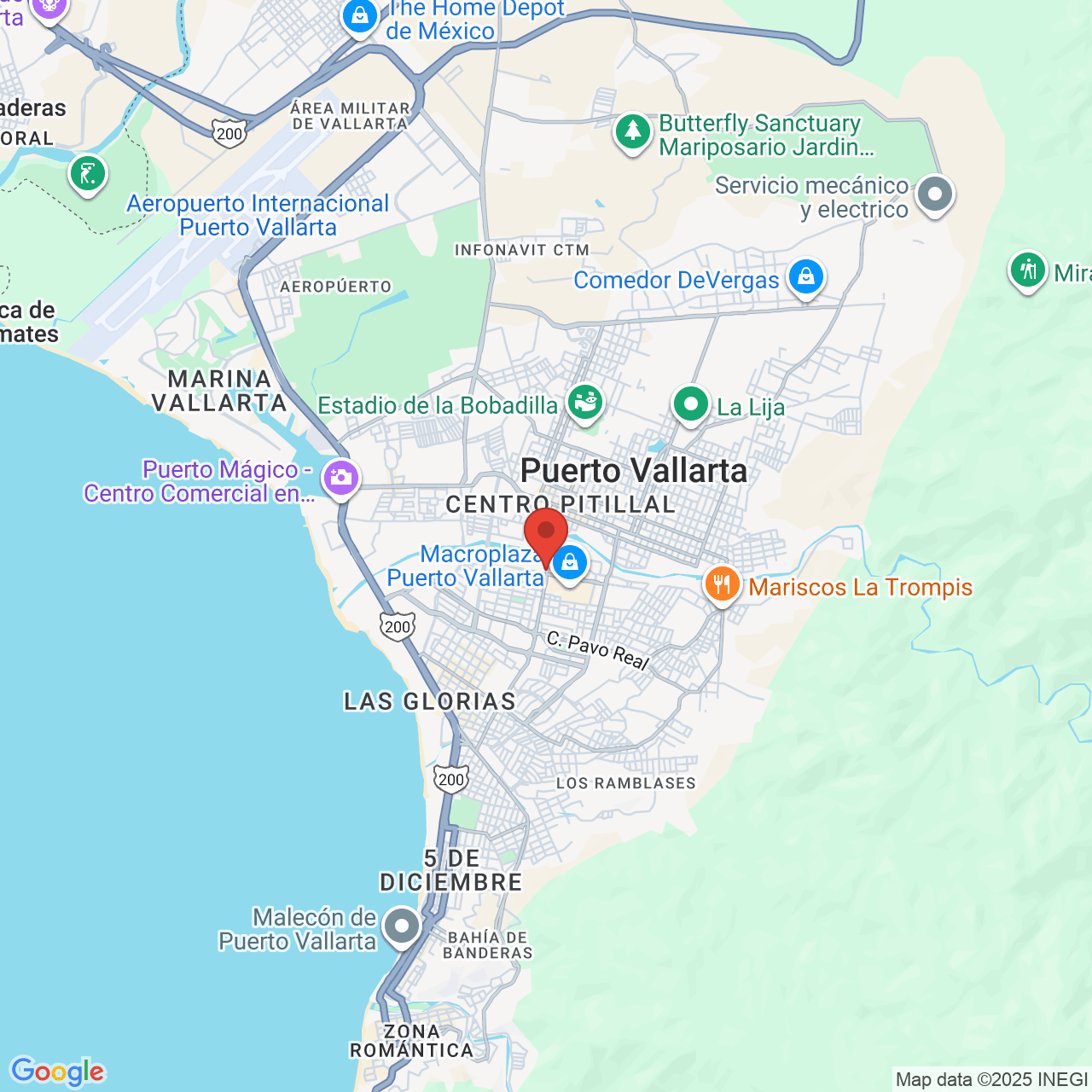Frequently Asked Questions about Bariatric Surgery
What is bariatric or weight loss surgery?
Bariatric surgery is the area of surgery that focuses on operations to reduce weight and treat obesity. The name comes from the Greek words baros, meaning weight, and iatrike, meaning treatment.
How is weight loss surgery different than liposuction?
Weight Loss Surgery is a major surgery involving the gastrointestinal tract. The stomach and intestines are modified so that less food can be consumed or absorbed, which leads to a substantial loss of weight that can be maintained for years. Liposuction is a form of cosmetic surgery in which areas of the body are reshaped or resculpted by removing excess amounts of fat in those areas. The purpose of liposuction is not to produce weight loss.
How do I know if I’m a candidate for this surgery?
The Bariatric Surgical Team at Weight Loss Team in Puerto Vallarta Mexico advises that you must have clinically severe obesity, also known as morbid obesity. This means your BMI must be higher than 35, or you must be at least 100 lbs above your ideal body weight. You may be a candidate if you’re less than 100 pounds overweight, if you also have significant health problems due to your weight, such as Type 2 diabetes. Most people with clinically severe obesity are good candidates for surgical treatment-as long as you understand the procedure, don’t have a severe, pathological eating disorder and are willing to come back for follow-ups.
What is BMI?
It stands for Body Mass Index and it determines someone’s health risk related to their weight. A BMI greater than 40 or greater than 35 with associated medical problems means you have clinically severe obesity which is associated with diabetes, heart disease, high blood pressure, high cholesterol, heartburn, gallstones, arthritis, urinary stress incontinence, infertility, and some types of cancer.
Does my weight alone justify such extreme measures?
Yes. Morbid obesity is an independent risk factor for premature death, with the risk rising as the BMI increases. People with a BMI of 30 have a relative risk of dying early that is 1.3 times greater than normal weight individuals. By the time the BMI is 40, the risk is close to 3 times as great.
I feel so guilty about being obese. . . is it all my fault?
No, obesity tends to run in families. Identification of several genes and their corresponding hormones (leptin) have been found to be at least partially responsible for obesity. Therefore, there is evidence that obesity is at least partially biological, helping to reduce the misconception that it is a behavioral or psychological disorder. I consider obesity a disease which needs a cure, rather than a moral failing which is the fault of the individual.
Why should I consider WLS?
Because it works! Surgical treatment for obesity is the ONLY treatment that reliably produces significant and sustained weight loss. People with clinically severe obesity are at great risk for developing many associated medical conditions. Research has shown that surgical treatment results in significant weight loss and improvement in most problems associated with obesity. Surgical treatment for clinically severe obesity has been endorsed by the National Institutes of Health, the World Health Organization, Shape-Up America, the American Heart Association, the American Dietetic Association, and the American Obesity Association.
Why not just lose the weight through diet and exercise and skip the serious complications that could result from surgery?
If you can lose the necessary amount of weight (and keep it off) through diet and exercise - more power to you! Ninety-five percent of the people considering WLS have tried (sometimes numerous times) and failed.
Why not take drugs to combat obesity?
Drug treatment does produce limited success (usually weight loss of about 35 to 40 pounds). However, concerns about the safety of long-term treatment have limited the drugs available and the length of time people can take them. This, in turn, limits their effectiveness because, as with any chronic disease, such as diabetes or high blood pressure, the drug is only effective as long as it is taken.
How does WLS promote weight loss?
Operations for the treatment of obesity usually induce weight loss by limiting the amount of food consumed, altering the normal absorption of nutrients, and/or altering the way the body utilizes energy. A Gastric Sleeve Surgery or Gastric bypass does all three. They actually boost your metabolism for the first 18 months, which is one reason patients lose weight so quickly.
Is laparoscopic surgery right for me?
Laparoscopic surgery is a good choice for most people. People who have had previous bariatric surgery or surgery on the stomach are probably better candidates for the open approach. People with BMI > 60 (more than 200-250 pounds overweight) may be better candidates for open surgery.
What if my friends accuse me of taking the easy way out?
You and your friends should be aware that there is no easy way out. Surgery makes the discipline of exercise and dietary control effective when it would not otherwise be effective. Obviously, surgery also entails risk and the courage to take that risk.
Is it unhealthy to lose weight rapidly after WLS?
The Bariatric Surgical Team at Weight Loss Team in Puerto Vallarta Mexico likes to answer this question by asking another question: “Is it healthy to be 100 pounds overweight?” The rapid weight loss experienced after WLS is extremely gratifying psychologically and physically. If you eat properly, making sure you get enough protein, there should be no ill effects from it.
Is there any limit on how heavy one can be to have weight loss surgery?
No. Successfully operations have been done on patients who weighed 750lbs., who had a BMI of 100. The operative risks are higher the more you weigh, but they still don’t approach the risk of remaining at such a high weight. The Bariatric Surgical Team at Weight Loss Team in Puerto Vallarta Mexico personally has operated on patients weighing well over 500 pounds with great success, yes the risks are higher, but so are these patients health risks without surgery.
A year after the surgery, are most people generally happier with their lives?
Yes. Much happier. Most patients say they would do it again “in a heartbeat.” Studies show that this kind of patient satisfaction is a true test of the surgery.
When it’s over, will there be things I need to do after surgery?
Regular, follow-ups are needed to monitor weight loss, provide dietary counseling, and to monitor for the occurrence of nutritional deficiencies or complications. We recommend visiting your local doctor once a year for a checkup and get a full blood panel drawn to make sure there are no deficiencies.
Can someone be too young to be a candidate for this surgery?
Yes. People can be too young. You need to have stopped growing and you need to have a mature bone age. In addition, you must understand the surgery and want it. You can’t have an operation because your friends or your parents want you to. You need to be able to give “informed consent”, which means you make an educated decision and then give your permission for the procedure. It is also necessary that your parents are supportive of your decision and understand the role they will need to play in your care and recovery.
Can you be too old for this surgery?
Age is one factor that needs to be considered together with all other aspects of a person’s health. I would not give an arbitrary or absolute cut off. Surgeries have been done on several patients in their late 60s and early 70s, with excellent results.
I am severely overweight, have diabetes, hypertension, and congestive heart failure. My internist tells me that I am “too sick” to be a candidate for WLS.
If you are overweight with associated problems due to obesity, you are not too sick to have this operation! You are too sick NOT to have it. The only chance you have for improvement in your medical conditions is through weight loss surgery..
Will my sex life improve?
Not guaranteed, but it is a common experience.
Which surgery is right for me?
The depends on your eating habits. If you are a sweet eater, then maybe you are a Bypass Candidate, if you are a large quantity and non-sweet eater, the band or Sleeve is perfect.
Why choose Weight Loss Team in Puerto Vallarta as opposed to surgery in Tijuana?
The Bariatric Surgical Team at Weight Loss Team in Puerto Vallarta Mexico provides support and experience. Weight Loss Team and its Bariatric Surgical team including the anesthesiologist specialize in Bariatrics and have years of experience working in the medical tourism industry for the last 19+ years. Weight Loss Team at the CMQ Family of Hospitals provides top quality care and service to the patients both before and after surgery. The team is available to you both preop as well as postop. The service you get, the attention you receive and the fact that we do not charge anything extra for the care we provide make having surgery with us a simple decision. You will not pay extra by having surgery with us, in fact we offer bariatric surgery in Puerto Vallarta for thousands of dollars less than other doctors offices in the USA. Puerto Vallarta is also much safer than Tijuana for weight loss surgery. There is a lot of drug violence at the Tijuana border and the insecurities of flying into San Diego and then having someone you dont really know transport you across the border in an unsecured vehicle can be dangerous. In Puerto Vallarta you will fly directly into the city and dont have to deal with the US border and the hourlong delays. Plus Puerto Vallarta is family friendly and safe. In Puerto Vallarta you can actually make a vacation out of your surgery and dont have to worry about the dangers of travelling to Tijuana.
Reach Out Today
If you have more bariatric surgery questions, or if you would like to schedule a consultation, contact our office online or call (866) 542-0744 today.


